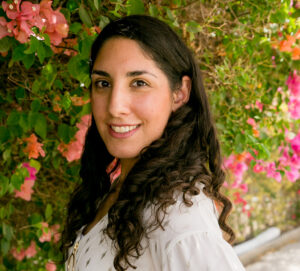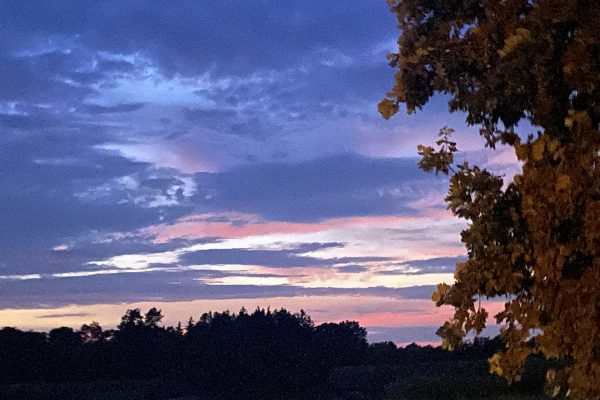Sometimes, the inspiration for writing a prayer or a ritual comes from the most unexpected places.
As I was preparing for teaching my Ritualwell Immersion in early July, gathering resources, organizing materials and imagining sessions packed with discussions and practices, suddenly I stopped. Pushed my laptop back at my desk and asked myself – “what should my learners be learning at the end?”
Don’t get it wrong: I already had an organized roadmap for the sessions with goals and objectives. It wasn’t that. It was deeper. I was searching for another level of application. And the words “May it be your will, God” – “יהי רצון מלפנייך, אלוהינו” came to my mind: a beginning of a kavannah. An intention – exactly what I was looking for. If I teach an Immersion about the Jewish practices of making debate respectful and fruitful, it is only natural to start it with an intention. Of course, our Jewish tradition had an answer, it always has.
And then, a new kavannah was born. One that is not attached to a holiday, but to something that happens to us more often: engaging in a challenging conversation. Many of us experienced an influx in the appearance of these conversations, as polarization is greater than ever before. The list of people we can talk to, openly and honestly, might have shrunk in the past years, some relationships gone downhill. What can we do to change that?
Our Jewish texts, stories and values articulate the ways we can work towards better conversations with others, whom we have a disagreement with. “Makhloket Matters”, a curriculum and a fellowship program I was happy to take part in, provided me with the Jewish tools to make respectful debate possible. This 8 week fellowship brought my attention to all the times I was thinking I was present in a conversation but wasn’t, to all the times I came to “win” with my argument, not to really understand the other side. Our sages called it: “Makhloket lo LeShem Shamayim” an argument that is not for the sake of heavens – and it is forbidden. Our tradition calls us to argue in a setting where you are not trying to win over the other person, not to show you are right and the other one is wrong. but to fully listen and understand, even if we disagree, perhaps – especially if we disagree.
That concept, of an argument not for the sake of heaven, and what is the kind for the sake of heavens: is a big power move. Stopping before engaging and assessing my own intentions, along with the intentions of the other side and deciding if to continue engaging or not, is huge. We don’t have to be in a situation that is not benefiting us, for heaven’s sake!
This practice, and others, helped me regain my control over conversations and making sure I have my intentions in the right place: to listen to the other person, to understand, even if I disagree. But at least I understand, and can oppose and share my thoughts respectfully. These practical tools made a world of difference to me, as well as to the group of 13 learners that joined me each week to gain these understandings and take a proactive approach when it comes to their reactions when they engage in challenging conversations.
Sometimes, we need to go back to then move forward.
Even though I had experience in Conflict Resolution, it was not compiled with Jewish experience. Learning these concepts felt like coming back home to my Jewish origins. What our Torah is saying? What our sages were thinking? And how I can implement it in my modern Jewish and secular life? Having these answers is empowering. May we all have the courage, patience and curiosity to learn, evolve and improve, to be the best we can be. This Elul, and beyond.
 Adva Chattler (she/her) is an Israeli-Mizrahi Jew, born and raised in Be’er-Sheva, Israel. She loves to create meaningful experiences through her cooking and baking that prompt sharing stories, teachings and rituals about Judaism, Israel and Mizrahi Jewish cultures and heritage. Adva is passionate about bringing people together in ways that spark relationship-building and connecting to others on a deeper level, both in the challenging and ever-changing world of online gatherings and in person. She holds a MA in Conflict Resolution and Management from Ben Gurion University of the Negev and a BA in Public Administration and Management from Sapir College in Sderot, Israel. With her experience in teaching and curriculum building, she supports facilitators and presenters for Ritualwell and Reconstructing Judaism and encourages them to bring not only their best self but best practices and tools for successful teaching online.
Adva Chattler (she/her) is an Israeli-Mizrahi Jew, born and raised in Be’er-Sheva, Israel. She loves to create meaningful experiences through her cooking and baking that prompt sharing stories, teachings and rituals about Judaism, Israel and Mizrahi Jewish cultures and heritage. Adva is passionate about bringing people together in ways that spark relationship-building and connecting to others on a deeper level, both in the challenging and ever-changing world of online gatherings and in person. She holds a MA in Conflict Resolution and Management from Ben Gurion University of the Negev and a BA in Public Administration and Management from Sapir College in Sderot, Israel. With her experience in teaching and curriculum building, she supports facilitators and presenters for Ritualwell and Reconstructing Judaism and encourages them to bring not only their best self but best practices and tools for successful teaching online.











